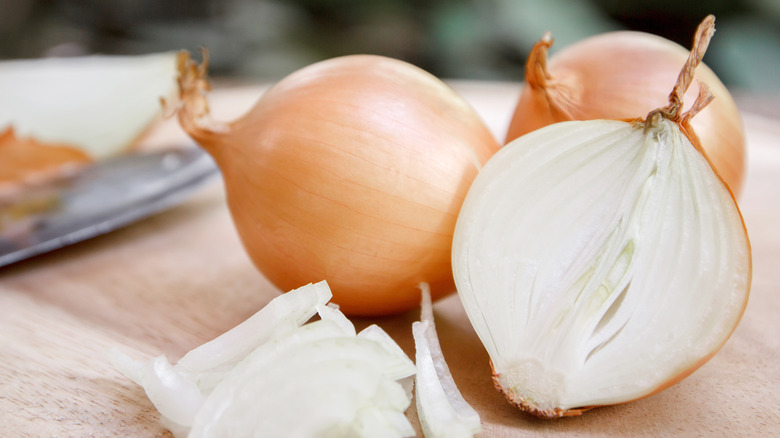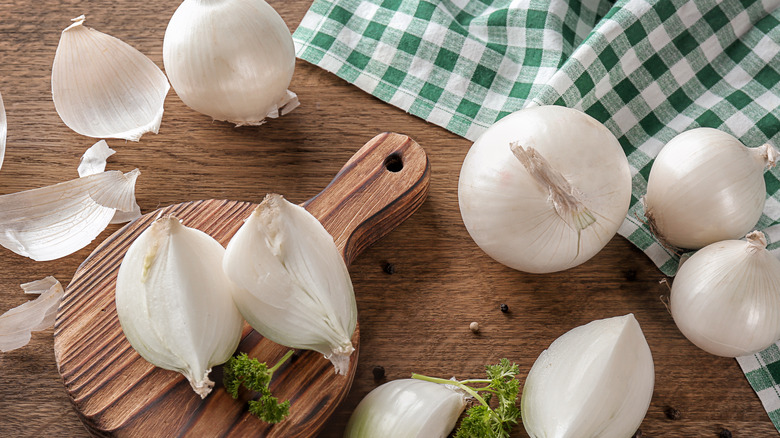The Real Difference Between White And Yellow Onions
When you're rushing to gather dinner ingredients at the grocery store, does it really matter whether you grab yellow onions or white onions for your recipe? While AllRecipes points out that the differences between these two are minor, it's still worth knowing what sets them apart.
Kitchn describes yellow onions as "all-purpose," meaning they work very well with many kinds of recipes and cooking methods. They're so ubiquitous that Serious Eats notes that most of the onions grown in the U.S. — a whopping 90% — are yellow. Their flavor is balanced, not too strong and not too sweet, and they bring plenty of flavor whether cooked briefly like in a sauté or long and slow in a soup or stew (note, they become sweeter the longer they cook, says Kitchn).
In fact, yellow onions are great to make a classic French onion soup. They bring a perfect level of sweetness after a patient caramelization in butter. Masterclass recommends using yellow onions for roasting with or without meats, as well as for sautéing to create softened, sweetened rings for sandwiches and burgers.
Yellow onions are also a reliable kitchen standby because of how well they store. Serious Eats notes that yellow onions can be harvested well into the fall and winter months. The colder months thicken the outer skins, and will dry the onions out more as well. Both of these occurrences make it even easier to store yellow onions for a long time. Storing your onions in a dry, ventilated spot and under cool temperatures will keep them usable for the longest possible time.
Here's how white onions are different
According to AllRecipes, white onions are a little more mild and have slightly more sweetness than yellow onions. And as you might assume from their name, white onions are this hue on both the inside and outside.
The Gardening Cook shares that white onions have a thinner, more delicate skin. These onions also have more water in their cells, which makes them crunchier. This texture plus the slightly milder flavor makes white onions a great choice for eating fresh. The Washington Post suggests slicing white onions for salads or dicing them for fresh salsas or pizza toppings.
It makes sense to purchase white onions closer to the time when you'll use them in your recipes, since Serious Eats points out that white onions don't store as long as yellow onions. If you do need to hold onto them for a bit, store them the same way as yellow onions, in a cool, dark, and ventilated location.
In the end, if you find you need yellow onions but only have white (or vice versa), AllRecipes confirms that they can be substituted for one another. They'll both cook well and add a lot of flavor to your dishes.

